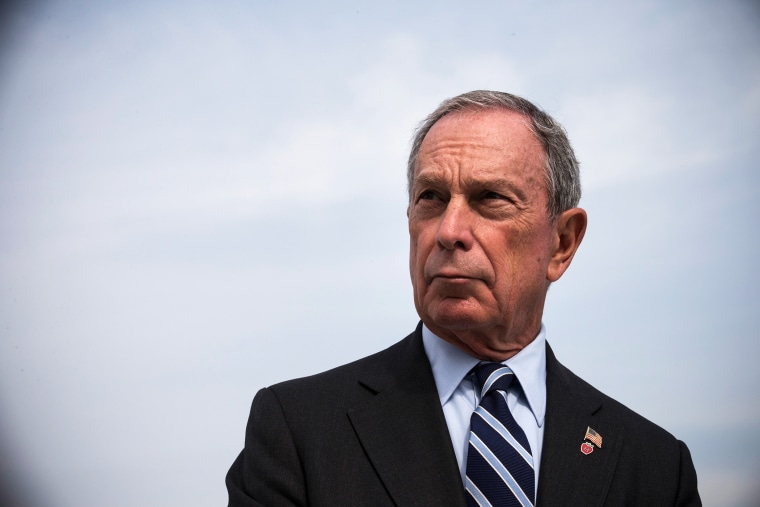A pattern is starting to emerge. Former New York City Mayor Michael Bloomberg considered an independent presidential campaign in 2008, before deciding against it. Four years later, in the advance of the 2012 elections, Bloomberg again thought about it, and again skipped the race.
And this year, it's happened once more. The former mayor appears to have come close to launching a White House bid, but yesterday, Bloomberg reached the same conclusion as he did in 2008 and 2012. This time, he acknowledged what was plainly true: Bloomberg risked splitting the center-left vote and helping elect a right-wing president.
But before we file this story away, let's note for the record that Bloomberg received some curious advice from the people he hired to advise him on a potential candidacy. New York magazine published this report a few days ago:
Though many have dismissed the prospect of a Bloomberg run as pure fantasy due to the challenging electoral math, a source close to Bloomberg says their research shows he would have a good chance in a Trump versus Sanders race, easily passing the 270 electoral vote mark by winning in New York, New Jersey, Connecticut, Pennsylvania, Ohio, Illinois, Florida, Maryland, California, Georgia, Virginia, North Carolina and Texas. "We're spending all day thinking and talking about it," said a member of Bloomberg's team, who like most of the three-dozen people interviewed for this article would only speak without attribution.
Wait, Team Bloomberg thought the former mayor of New York City, an enthusiastic proponent of new gun laws, was well positioned to win in states like Texas and Georgia?
The New York Times published a related document online with electoral maps that "Bloomberg's aides used internally to guide their thinking about how he would affect the presidential race." One showed a three-way contest featuring Donald Trump, Bernie Sanders, and Bloomberg, and in that scenario, Bloomberg's aides believed the independent would win red states like Tennessee and Indiana, while Vermont would be a toss-up.
Or put another way, Bloomberg received some very odd information from the team he assembled.
For what it's worth, the former mayor's chief strategist was reportedly Doug Schoen, a Fox News pundit who claims to be a Democrat, but whose hostility towards Democrats and progressive policy measures has made him the butt of jokes for many years.
I'm not sure Bloomberg showed good judgment when choosing campaign aides, but he appears to have made the right decision when it counts.
